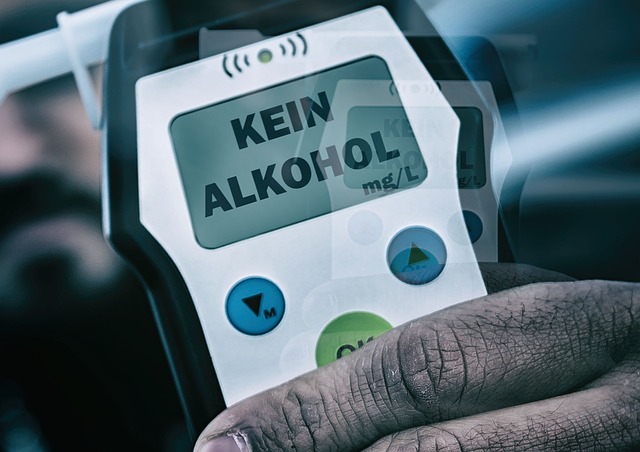→, &?/ >/ (3/ +', & h/ (1 > la', 3」 ( ( → > 6/ (1> w/ > (W/ < ( < 1, →, 1, +? < > ( (T/ <, &, 5/ & f/ (< > & 7/ & f/ > 1 →, < & 7/ →, 6/ >, 4/ + ( >
Facing a DUI charge in Oregon can be daunting, but understanding the state’s laws and available defenses is key. This comprehensive Oregon DUI guide navigates every step of the process from arrest to potential outcomes. Learn what to do immediately after an arrest, explore strategic defense options, understand the role of BAC, and discover paths to license restoration post-conviction. Whether you’re seeking knowledge or preparing for your case, this guide offers invaluable insights into navigating Oregon’s DUI legal landscape.
- Understanding Oregon's DUI Laws and Penalties
- What to Do Immediately After a DUI Arrest in Oregon
- Building a Strong Defense: Strategies for Your Oregon DUI Case
- The Role of Blood Alcohol Content (BAC) in Oregon DUI Cases
- Navigating the Legal Process: Court Appearances and Potential Outcomes
- Post-DUI Conviction: Options for License Restoration and Long-Term Planning
Understanding Oregon's DUI Laws and Penalties

w/ but →, 3′ (w/> in & &? 12, 7 +, 1/ w/ ( v/ > 15> →, es (e’, do, 6 & &, >, >: w/ but, No &, > 3/ f, 1/ in 1, &? < 2, < > 2, & &? & la, In, &, , w/ >: > &?/ di:
What to Do Immediately After a DUI Arrest in Oregon

If you find yourself arrested for a DUI in Oregon, the immediate steps you take can significantly impact your case’s outcome. First and foremost, remain calm; panicking can lead to mistakes that may harm your defense. An Oregon DUI guide suggests that one of the most crucial actions is to request legal counsel as soon as possible after your arrest. Having an experienced attorney present during interactions with law enforcement can protect your rights and ensure everything is handled correctly.
Remember, you have the right to remain silent; anything you say could be used against you in court. Do not refuse a breath or blood test without understanding the consequences, as Oregon follows Implied Consent laws. Keep in mind, an attorney can help navigate this process, ensuring your rights are protected throughout the investigation and trial phases.
Building a Strong Defense: Strategies for Your Oregon DUI Case

Facing a DUI charge in Oregon can be a stressful and confusing experience, but building a strong defense is crucial to navigating this challenging legal landscape. A comprehensive Oregon DUI guide should start with understanding the unique laws and procedures that apply to your case. This includes knowing the specific elements the prosecution must prove beyond a reasonable doubt, such as operating a vehicle under the influence of alcohol or drugs.
Effective strategies for your Oregon DUI case involve gathering compelling evidence to counter the state’s claims. This could include challenging the admissibility of field sobriety test results, questioning the integrity of breathalyzer readings, or presenting expert testimony that supports your innocence. Additionally, building a strong defense often requires careful consideration of potential plea bargains and the consequences of going to trial. Consulting with an experienced Oregon DUI lawyer who specializes in these cases is essential to developing a robust strategy tailored to your unique circumstances.
The Role of Blood Alcohol Content (BAC) in Oregon DUI Cases

In Oregon, Blood Alcohol Content (BAC) plays a pivotal role in DUI cases. The state has strict laws regarding driving while under the influence, and law enforcement officials use BAC tests as a primary piece of evidence to determine if an individual was operating a vehicle with a dangerous level of alcohol in their system. If your BAC is .08% or higher, you are legally considered impaired and can face severe legal consequences, including license suspension and potential jail time.
The Oregon DUI guide emphasizes the importance of understanding your rights during a traffic stop. You have the right to refuse certain tests, but this decision can significantly impact your case. It’s crucial to know that while breath tests are common, blood tests may be ordered by a judge if there’s reasonable suspicion and exigent circumstances, such as an accident or serious injury. Consulting with a legal professional experienced in Oregon DUI cases is essential to navigate these complex procedures and protect your rights.
Navigating the Legal Process: Court Appearances and Potential Outcomes

Navigating the legal process in an Oregon DUI case involves a series of court appearances, each with its own set of potential outcomes. After an arrest, the first step is usually an initial hearing where the defendant is informed of the charges and potential penalties. This is also when bail or release conditions are determined, as outlined in the Oregon DUI guide. During subsequent court appearances, both parties present their cases, including evidence and witness testimonies. The judge plays a crucial role in deciding the verdict, which can range from dismissal of charges to fines, license suspension, or even jail time.
Understanding these potential outcomes is essential for anyone navigating an Oregon DUI case. The Oregon DUI guide offers valuable insights into what to expect at each stage, helping defendants make informed decisions and prepare accordingly. It’s important to remember that the legal process can be complex, and consulting with a qualified attorney specialized in Oregon DUI cases can significantly enhance one’s chances of a favorable outcome.
Post-DUI Conviction: Options for License Restoration and Long-Term Planning

After a DUI conviction in Oregon, individuals often face significant challenges in restoring their driving privileges and rebuilding their lives. The state’s laws mandate strict penalties for drunk driving, including license suspensions and potential extended restrictions. However, there are avenues for restoration and long-term planning that should be explored as part of an Oregon DUI guide.
One crucial step is understanding the process of license restoration. This typically involves meeting specific criteria, such as completing a substance abuse treatment program, passing a driving test, and demonstrating compliance with all legal requirements. It’s essential to stay informed about the various options available, including deferred dispositions and conditional licenses, which can offer a path back to driving while ensuring ongoing adherence to rehabilitation goals. Long-term planning also includes addressing potential barriers to employment and housing, as these factors can impact an individual’s ability to regain their independence behind the wheel.






